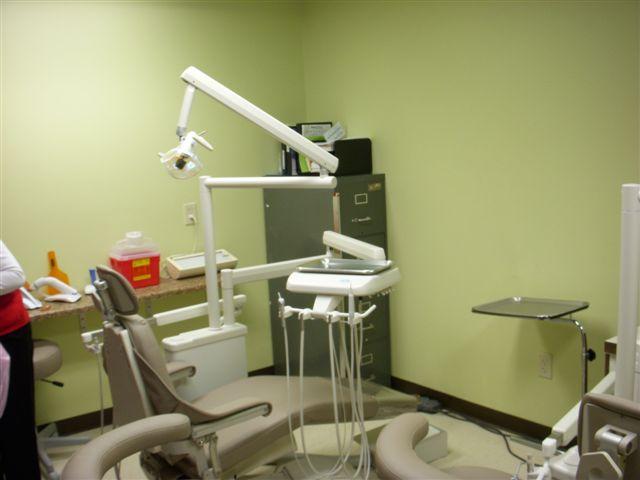Medicaid Free Dental Clinics

Understanding what types of free dental clinics are offered through Medicaid—or determining what type of free dental care is covered by Medicaid—takes some homework:
- Each state has different Medicaid rules.
- Rules and specific definitions may apply to medically-necessary or emergency treatments.
Medicaid typically pays for medically-necessary and emergency dental work for beneficiaries. However, each state ultimately decides the dental treatments it pays for.
Comprehensive dental care is covered by Medicaid in 32 states. Unfortunately, many states Medicaid departments cover just certain types of treatments.
The good news is that Medicaid occasionally expands dental services access to special needs populations, such as low-income seniors, pregnant women, and disabled adults.
Emergency or Medically-Necessary Dental Work is Covered by Medicaid
Regardless of your state’s coverage of dental services of Medicaid beneficiaries, the play may pay for medically-necessary treatments, e.g. extraction of an abscessed tooth, or emergency services, e.g. urgent care after a serious accident.
It’s important to understand what the legal definitions of terms mean in some states. For instance, what’s considered an emergency or what procedures qualify as medically-necessary treatments?
Emergency Dental Treatments
Medicaid pays for emergency dentistry services for adults. If a Medicaid beneficiary lives in a state that doesn’t pay for comprehensive dental care, it’s important to know what the state considers an emergency to determine what the program pays for.
Ultimately, Medicaid pays for an emergency dental extraction or other types of treatments that offer pain relief:
- The American Dental Association (ADA) defines emergency dental treatment. (Note: ADA isn’t affiliated with the government and isn’t an agency of the government.)
- According to ADA, emergency dental treatment is a service needed to relieve pain, manage an acute infection, or control bleeding.
- Emergency dental treatment may involve treating the patient to prevent “imminent loss” of his or her tooth/teeth or “pulpal death.”
- Emergency treatment may involve treatment of dental injuries or supporting bones or structures of the teeth.
- Emergency dental treatment may involve the provision of “palliative therapy” to manage the pain of impacted teeth or swollen gums.
Because emergency dental services can mean different things to the state agencies, each state establishes guidelines for its Medicaid program.
If the state provides beneficiaries with access to dental services offered by private entities, these providers decide whether the patient’s claim is honored.
Medicaid offers just medically-necessary services in Arizona, Idaho, Maryland, Montana, Texas, Georgia, Kansas, Mississippi, New Hampshire, Utah, Hawaii, Maine, Missouri, Oklahoma, and West Virginia.
Several states, including Tennessee, Alabama, and Delaware, limit the use of Medicaid for emergency dentistry services.
Medically-Necessary Dental Services
Medicaid is essentially a medical insurance program from U.S. adults. If the state’s Medicaid plan pays for medically-necessary procedures, this may encompass dental services needed to manage specific diseases, “non-biting” accidents, or services considered “integral” to the services offered in the state plan.
Medicaid pays for medically-necessary dental services and vision when needed in every state. However, if you have questions about what Medicaid pays for in your state, it’s always best to contact the program to get preauthorization for service.
Sedation and Anesthesia
Medicaid pays for pain suppression therapies, including anesthesia, nitrous oxide, and sedation, when it pays for the underlying dental treatment.
Again, there’s no single answer to what dental services or adjunct therapies Medicaid pays for:
- A state Medicaid plan may pay for emergency anesthesia and medically-necessary services.
- If the state supports the dental treatment, Medicaid typically pays for the support treatments.
- Review the covered categories of dental comprehensive care offered by the state or contact Medicaid.
Comprehensive Dental Services Coverage by Medicaid
Medicaid pays for comprehensive dental care coverage in some states. Each state decides the services offered under this umbrella. It’s important for the beneficiary to ask questions about whether his or her Medicaid plan pays for a certain treatment.
Preventive Dental Care
Medicaid covers preventive care, including regular dental visits (checkups and exams), sealants, cleaning, and bitewing x-rays. Dental wellness care helps Medicaid beneficiaries to avoid periodontal disease, enamel wear, and tooth loss.
Alaska, Colorado, Iowa, Michigan, New Jersey, North Carolina, Oregon, South Carolina, Arkansas, Connecticut, Kentucky, Minnesota, New Mexico, North Dakota, Pennsylvania, South Dakota, Washington, Wisconsin, California, Indiana, Massachusetts, Nebraska, New York, Ohio, Rhode Island, Vermont, and Wyoming offer preventive dental services to Medicaid beneficiaries.
Restorative Dental Work
Restorative services include replacing or repairing defective or damaged teeth. Basic restorative dental services, e.g. temporary/permanent crowns, fillings, root canals, inlays, and onlays are offered by some Medicaid plans.
Alaska, Colorado, Iowa, Nebraska, New York, Ohio, Arkansas, Connecticut, Massachusetts, New Jersey, North Carolina, Oregon, California, Illinois, Minnesota, New Mexico, North Dakota, and Pennsylvania offer some restorative dental services.
Of course, it is up to the beneficiary to determine the treatments his or her state plan pays for.
Periodontal Disease Services
Medicaid beneficiaries suffering from periodontal disease lose teeth without treatment. Periodontal dental services are covered by Medicaid in some states. A periodontist focuses on the treatment, prevention, or diagnosis of gum disease.
Arkansas, Connecticut, Minnesota, New Mexico, North Dakota, Vermont, California, Iowa, Nebraska, New York, Pennsylvania, Washington, Colorado, Kentucky, New Jersey, North Carolina, Rhode Island, and Wisconsin Medicaid programs pay for some periodontal dental services.
Medicaid Pays for Other Dental Services
Some states pay for their beneficiaries bridges, dentures, and (very rarely) dental implants. In addition, Medicaid pays for oral surgery, e.g. extraction of wisdom teeth, corrective jaw surgery (TMJ), underbite surgery, etc., in about half the states.
Medicaid won’t pay for cosmetic dentistry. Bleaching, whitening, lumineers, bonding, and white fillings aren’t covered.